Islamic History of Morocco | Best Places for Muslims
Explore the rich Islamic history of Morocco, from ancient mosques to Ibn Battuta’s legacy—plus the top cities to visit for Muslim family travelers. Discover why Morocco is one of the best places for Muslims to visit.
7/29/20258 min read
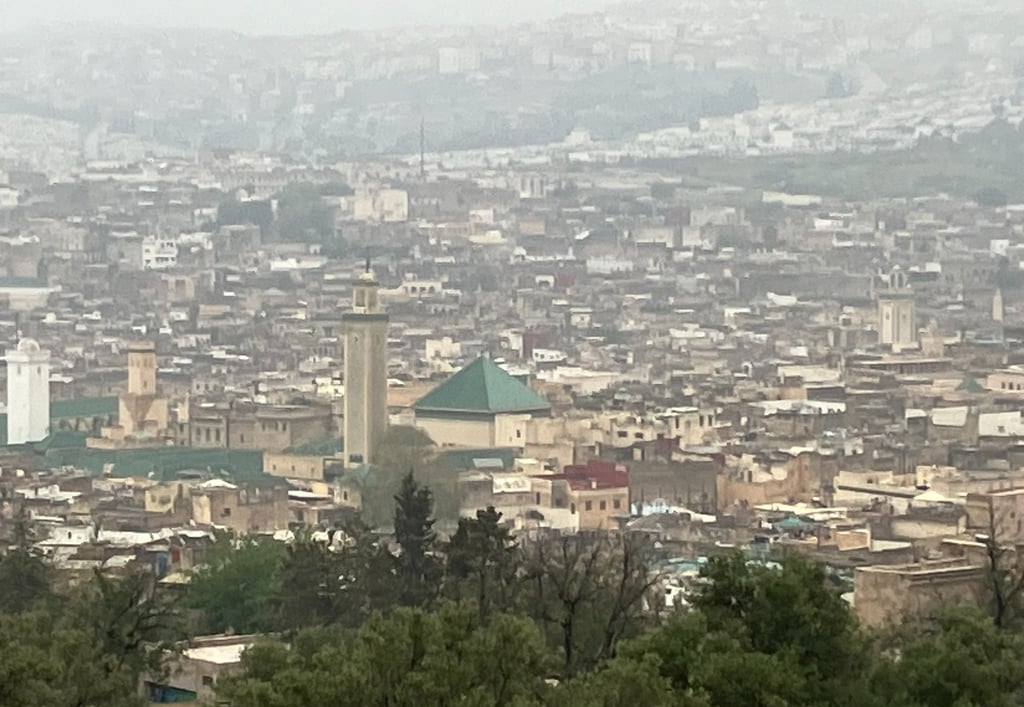

بِسْمِ ٱللَّٰهِ ٱلرَّحْمَٰنِ ٱلرَّحِيمِ
Morocco is one of the most spiritually rich and historically vibrant Muslim-majority countries in the world. Nestled in the northwest corner of Africa, this land of imperial cities, ancient medinas, and breathtaking mosques has been a stronghold of Islamic faith for over 1,200 years. For Muslim families seeking a halal-friendly destination full of Islamic heritage, family experiences, and beautiful masjids, Morocco is an unforgettable journey through time.
In this comprehensive guide, we’ll explore the history of Islam in Morocco, the oldest mosques, the global contributions to Moroccan Islam, inspiring Muslim figures like Ibn Battuta, and why Morocco remains one of the best destinations for Muslim families seeking spirituality, history, and adventure — far from the over-touristed path.
The Arrival of Islam in Morocco: A Historical Overview
Islam was introduced to Morocco in the 7th century, during the expansion of the Umayyad Caliphate across North Africa. One of the most pivotal figures was Uqba ibn Nafi(RA), a companion of our beloved Prophet ﷺ who helped establish Muslim communities across the Maghreb.
Sent as part of the Islamic campaigns to spread the message of Islam westward, Uqba(RA) journeyed across Egypt and Libya and eventually reached what is now Tunisia, Algeria, and parts of Morocco. In 670 CE, he founded the city of Kairouan, which would become a major Islamic hub and one of the oldest Islamic cities in North Africa. Through da’wah, treaty-making, and community-building, he helped lay the spiritual and infrastructural foundation for Islam in the region.
Uqba ibn Nafi was known not just for military strength but also for his deep tawakkul (trust in Allah) and visionary leadership. According to tradition, during one of his campaigns, he rode his horse into the Atlantic Ocean and declared that if not for the sea, he would have continued spreading Islam further west. He was eventually martyred in 683 CE near Biskra, Algeria, during an ambush by Berber resistance forces allied with the Byzantines. He is buried in Sidi Uqba, near the city of Biskra. His legacy lives on in North African Islamic identity, and many Moroccan communities trace their initial exposure to Islam back to the path he helped clear.
By the early 8th century, Islam had spread widely. The Berbers, Morocco’s indigenous people, quickly embraced the religion and incorporated it into their social and tribal structures, creating a uniquely North African expression of Islam that still exists today.
Idris I: The Foundation of Islamic Morocco
Idris ibn Abdallah (RA), also known as Idris I, was a direct descendant of the our beloved Prophet ﷺ through his grandson Hasan ibn Ali (RA). After surviving the tragic Battle of Fakhkh in 786 CE — where many of Ahlul Bayt (the Prophet’s family) were killed — Idris fled east and eventually sought refuge among the Berber tribes in northern Morocco. Welcomed for both his noble lineage and deep piety, he united several tribes under the banner of Islam and was seen as both a religious and political leader. In 788 CE, he established the first independent Islamic state in Morocco, known as the Idrisid dynasty, centered in the newly founded city of Volubilis (near present-day Moulay Idriss Zerhoun).
What set Idris I apart was his unique ability to integrate the Islamic tradition with Berber tribal customs, planting the seeds of Morocco’s enduring Islamic identity. He encouraged Islamic education, the construction of masjids, and local governance rooted in Shariah principles. Though his reign was short—he was poisoned in 791 CE —his legacy endured through his son, Idris II, who expanded the dynasty and formally established Fes as the Islamic and cultural heart of Morocco.
This dynasty laid the foundations for Moroccan Islamic identity: one that is Sunni, Maliki, and deeply rooted in scholarship and Sufism. Idris I’s tomb in Moulay Idriss Zerhoun remains a popular pilgrimage site.
The Oldest Mosques in Morocco: Timeless Symbols of Faith
Al-Qarawiyyin Mosque – Fes
Founded: 859 CE by Fatima al-Fihri
Known For: The oldest operating university in the world
Why Visit: It’s a place of knowledge, faith, and heritage — perfect for Muslim families teaching their kids about the value of ilm (knowledge).
Tinmel Mosque – High Atlas Mountains
Founded: 1148 CE, Almohad dynasty
Why Visit: Tucked away in a quiet village, this mosque offers spiritual peace and panoramic mountain views. Restoration efforts are ongoing, and the site is less frequented by tourists.
Grand Mosque of Taza
Built: 11th century
Why Visit: A beautiful and often overlooked mosque in an underrated city, offering a peaceful and authentic Moroccan experience.
Mosque of Moulay Idriss Zerhoun
Established: Around the 9th century
Why Visit: This mosque is part of a sacred city and shrine complex that reflects Morocco’s earliest Islamic roots.
Hassan Tower – Rabat
Construction Began: 1195 CE
Why Visit: A symbol of Almohad ambition. Though incomplete, its red sandstone minaret remains one of Morocco’s most iconic Islamic landmarks.
Fatima al-Fihri: A Legacy of Islamic Knowledge
Fatima al-Fihri, also known as Umm al-Banīn, was a visionary Muslim woman whose legacy continues to inspire Muslims around the world—especially those passionate about Islamic education and women’s contributions to our ummah. Born in Kairouan (modern-day Tunisia) in the early 9th century, Fatima migrated with her wealthy family to Fes, Morocco, a city that was quickly becoming a major center of Islamic scholarship and culture.
After the passing of her father and husband, Fatima inherited a substantial fortune. Rather than using it for personal luxury, she chose to dedicate her entire wealth to building a masjid and a place of learning for the community. In 859 CE, she founded Al-Qarawiyyin Mosque and University, which remains the oldest continually operating university in the world, recognized by both UNESCO and the Guinness Book of World Records.
Today, families visiting Fes can walk through the historic Qarawiyyin complex and reflect on the impact one righteous woman had on not just Morocco, but on the global Islamic civilization. Her story is a powerful reminder of the role women have always played in shaping Islamic heritage, and a perfect educational moment for Muslim children learning about their spiritual ancestors.
Islam in Modern Morocco: Faith in Everyday Life
With over 99% of the population identifying as Muslim, Morocco’s public life is infused with Islamic culture. The Maliki madhhab dominates the country and larger region.
Mosque Count in Morocco
Over 51,000 mosques
More than 10,000 Jumu’ah mosques
A wide network of mosques in cities, villages, and mountains
Many are centuries old and open for both locals and travelers to pray
Adhans echo across every neighborhood, and Islamic practices like daily prayers, Ramadan fasting, and Eid celebrations are actively observed throughout the country.
Ibn Battuta: The Original Muslim Nomad
One of our sources of inspiration for Muslim Family Nomad is none other than Ibn Battuta — the most famous traveler in the Islamic world. Born in Tangier in 1304, Ibn Battuta set off for Hajj at age 21 and didn’t stop traveling for almost 30 years, visiting more than 40 modern-day countries.
He journeyed through North Africa, the Middle East, Persia, Central Asia, India, China, and West Africa. His writings offer one of the most comprehensive looks at the Islamic world of the 14th century.
His hometown of Tangier honors him with a museum — a great educational stop for kids learning about Islamic history and geography. For us, he embodies the spirit of travel with purpose: to learn, to connect, and to grow closer to Allah through the beauty of His earth.
Why Morocco Is a Top Destination for Muslim Families
1. Family-Friendly Islamic Culture
You’ll feel an immediate sense of comfort in Morocco’s Muslim-majority environment. Modest clothing is the norm, families are at the heart of daily life, and Islamic values like hospitality, respect for elders, and community are everywhere.
2. Halal Food Everywhere
From street food to sit-down restaurants, nearly everything is halal. You can confidently enjoy both the classical and modern foods this incredible country has to offer. Check out our post for our top 5 favorite foods in Morocco.
3. Mosques in Every Neighborhood
No need to search far for a place to pray. Every area from big cities to small villages have masjids, and large cities often feature historic mosques open to visitors during non-prayer hours. Moroccan mosques are uniquely stunning, blending Andalusian, Berber, and Arab-Islamic styles into intricate geometric designs, vibrant zellij tilework, and towering horseshoe-arched minarets. Their earthy tones, carved cedarwood, and peaceful courtyards create a spiritual ambiance unlike any other in the Muslim world.
4. Less Commercialized Than Other Muslim Destinations
Compared to places like Istanbul or Cairo, Morocco offers a more relaxed, authentic Muslim travel experience, away from overwhelming tourism and commercialization. Aside from the few touristy city areas in a few cities, you will find mostly locals living their daily life. This give you a great feel of what it is like to live there and be a part of the community.
Top Cities for Muslim Families Visiting Morocco
1. Fes – The Spiritual Capital
Highlights: Al-Qarawiyyin Mosque, medina UNESCO World Heritage Site, traditional crafts
Why It’s Great: It’s steeped in Islamic scholarship and has remained largely untouched by over-tourism. Keep in mind the old city is a tourist trap for the most part but if you look past that you will get a glance into the history of this ancient city. Also, outside of the old city, Fes is a great place with much less tourist where you can experience a more modern yet local vibe.
2. Casablanca – The Modern Islamic Metropolis
Highlights: Hassan II Mosque (one of the largest in the world), scenic Atlantic views, modern halal food options
Why It’s Great: Offers a mix of tradition and convenience, with wide sidewalks for strollers and Muslim-friendly malls. For those traveling while working or going to school, this is a top choice because it is clean, has great infrastructure and amenities. Also there is beautiful ocean front areas for your family to enjoy making it our base camp choice to explore the country .
3. Meknes – Underrated Imperial City
Highlights: Mausoleum of Moulay Ismail, quiet medinas, friendly locals
Why It’s Great: Similar history to Marrakesh but far fewer crowds. Great place for slower family exploration. The city has busy areas but for the most part its quite and peaceful.
4. Tangier – Birthplace of Ibn Battuta
Highlights: Ibn Battuta Museum, Kasbah, views of Spain across the water
Why It’s Great: Compact and scenic, with Islamic history and Andalusian architecture. Great base for ferrying to Spain. There are more tourist, bars, etc here then other places in Morocco so choose your accommodation wisely.
Final Thoughts: A Journey Through History
From the mountain mosques of Tinmel to the coastal minarets of Casablanca, Morocco is an ideal place for Muslim families to reconnect with their faith, history, and each other. Whether you’re walking the ancient alleys of Fes, sipping mint tea near the Hassan II Mosque, or introducing your children to the adventures of Ibn Battuta, every corner of Morocco holds something meaningful.
Make sure to add this incredible country to your list and explore the Muslim World!
Don’t forget to check out our YouTube channel for our full videos, and subscribe to our blog for more Muslim family travel guides, discover great halal food , and Islamic heritage experiences.
Nomad Links
Flights: Google Flights
Stays: Trip.com
VPN Routers: GL.iNet GL-MT6000 - GL.iNet GL-AXT1800 - Tenda AX3000 WiFi Router
VPN Services: SurfShark, NordVPN
Temu: Temu App Download
Esim: AloSIM
Airport Transfers: Trip.com
Car Rental: Qeeq.com
Full Product Recommendation Page
Please see our list of blogs to learn more, and you can contact us directly at muslimfamilynomad@gmail.com for any questions and even set up a consultation.
** Disclaimer: We are compensated for some of the links provided in this article if you purchase something, but we only recommend what we have used and found successful or we have done some research to find. This blog should not be used as financial advice and we are not travel agents, we are just letting you know our opinions from real life experience. May Allah bless you and your family on your travels!
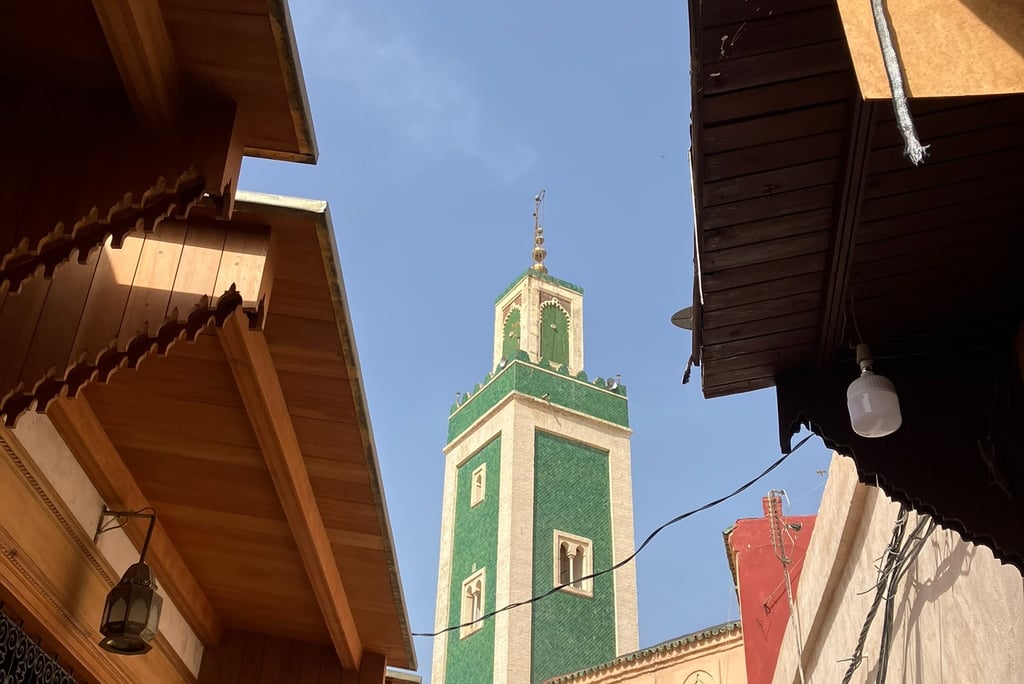

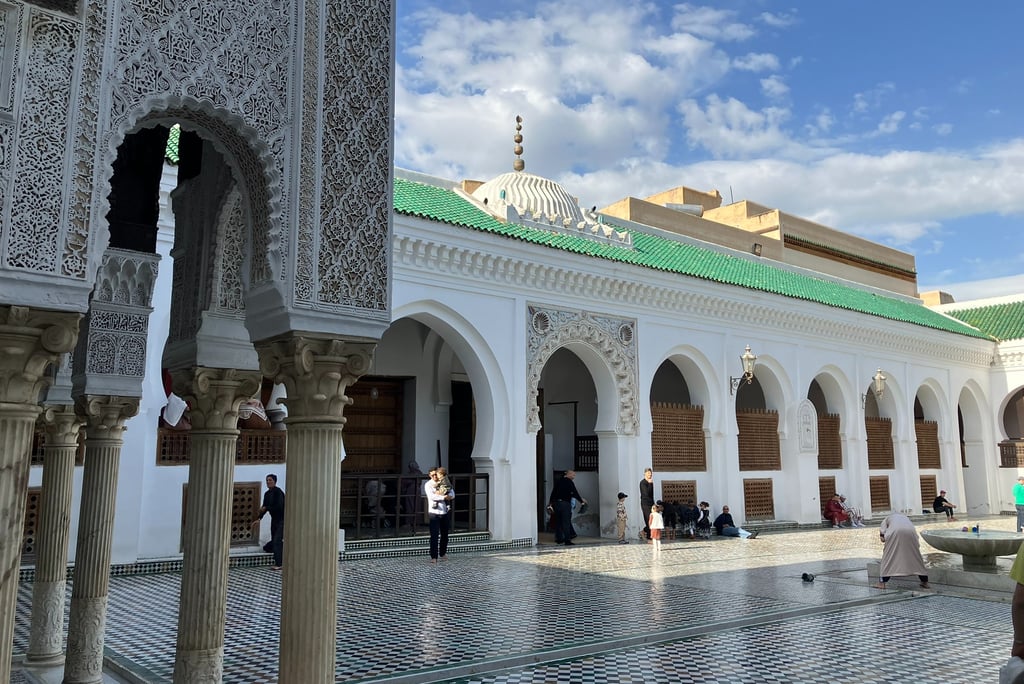

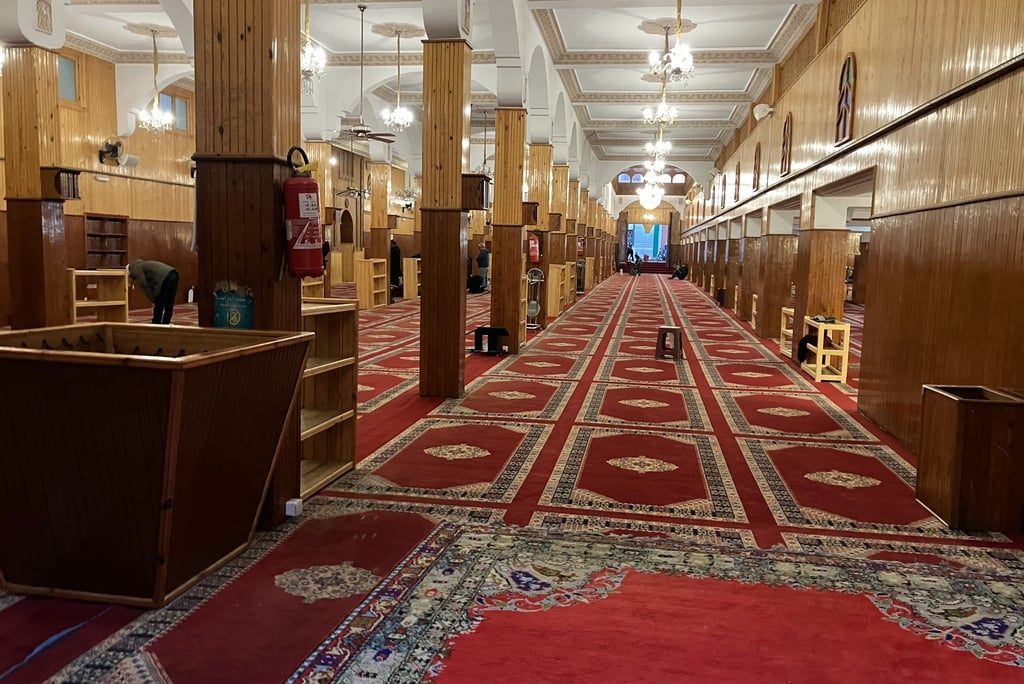

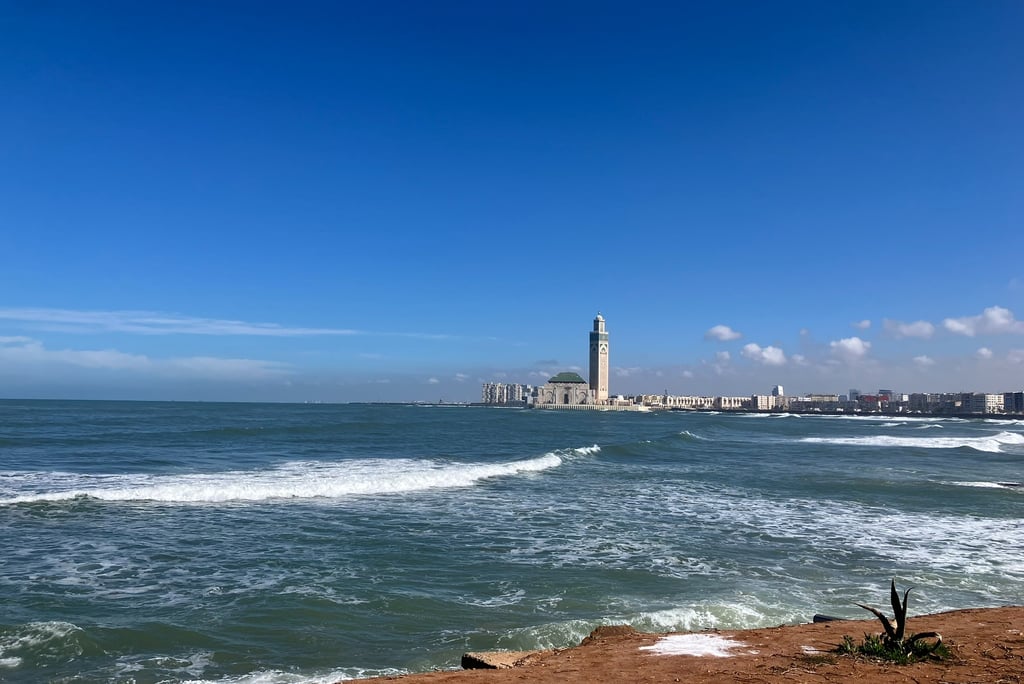

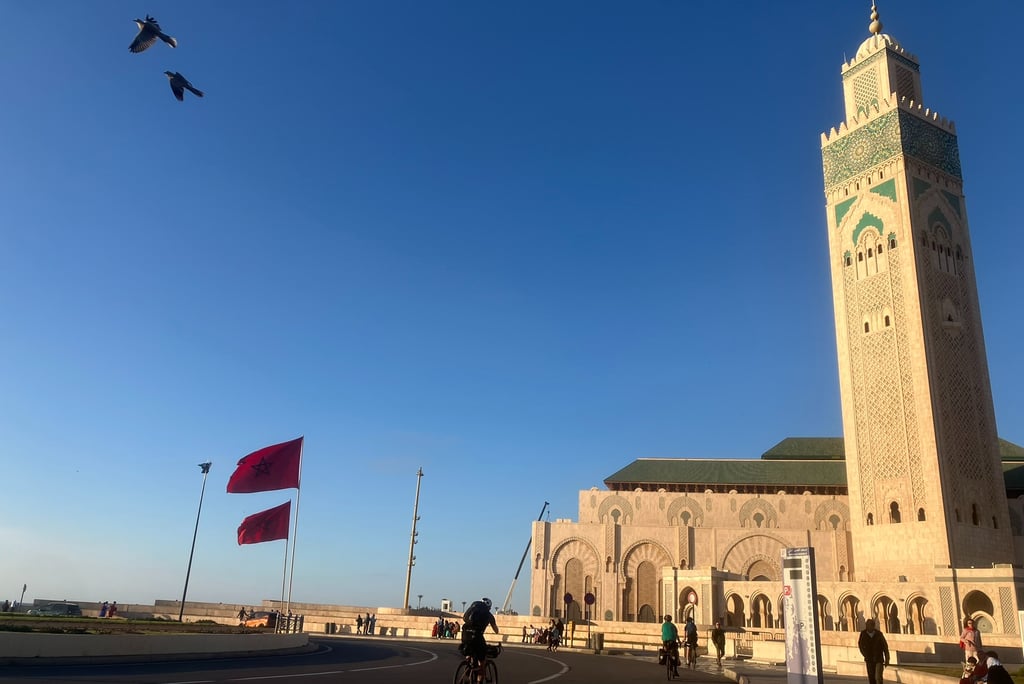

Muslim Family Nomad
Discover tips for Muslim-friendly travel experiences.
Stay in Contact
© 2025. All rights reserved.
